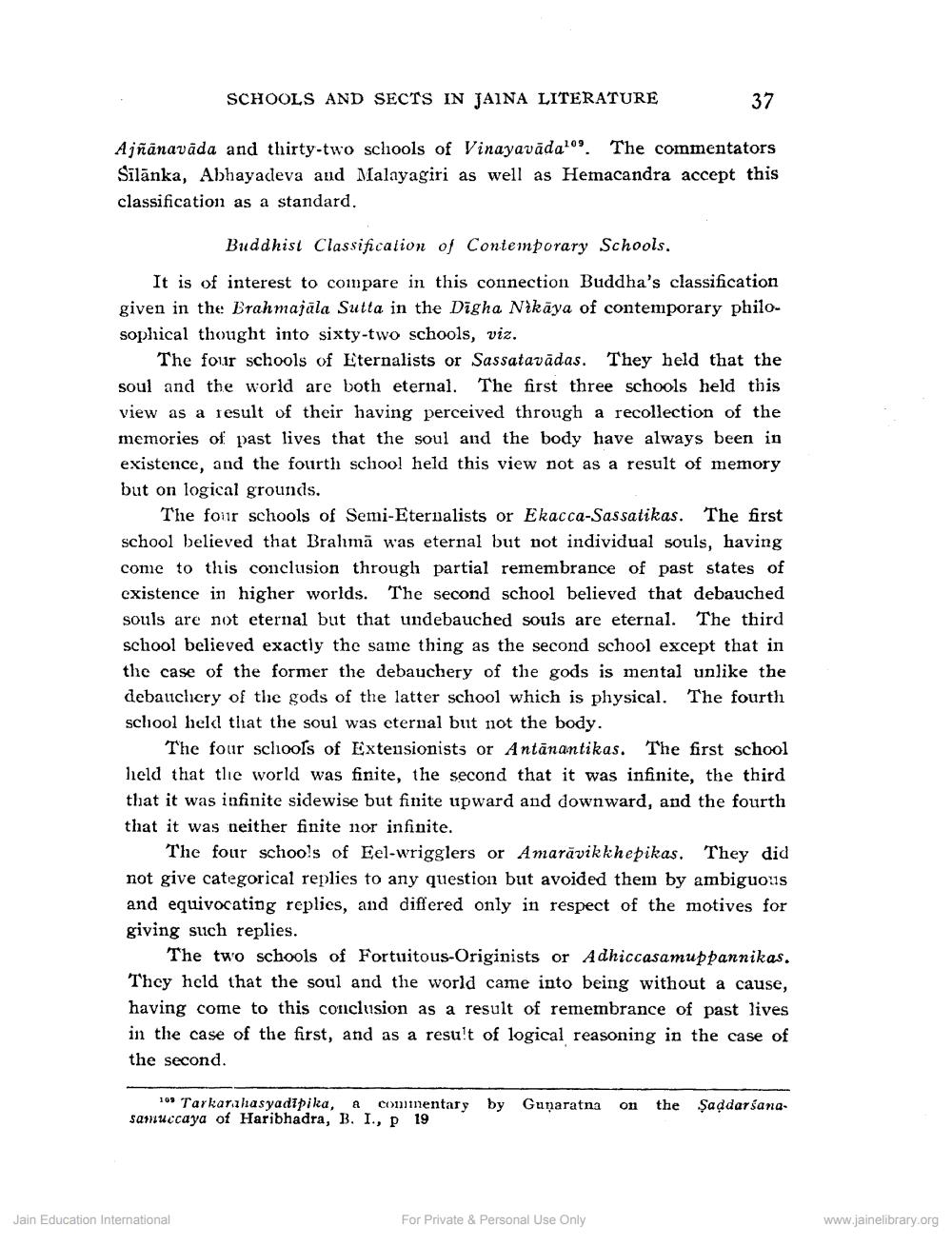________________
SCHOOLS AND SECTS IN JAINA LITERATURE
Ajñānavāda and thirty-two schools of Vinayavada. The commentators Silanka, Abhayadeva and Malayagiri as well as Hemacandra accept this classification as a standard.
37
Buddhist Classification of Contemporary Schools.
It is of interest to compare in this connection Buddha's classification given in the Brahmajäla Sutta in the Digha Nikaya of contemporary philo. sophical thought into sixty-two schools, viz.
The four schools of Eternalists or Sassatavādas. They held that the soul and the world are both eternal. The first three schools held this view as a result of their having perceived through a recollection of the memories of past lives that the soul and the body have always been in existence, and the fourth school held this view not as a result of memory but on logical grounds.
The four schools of Semi-Eternalists or Ekacca-Sassatikas. The first school believed that Brahma was eternal but not individual souls, having come to this conclusion through partial remembrance of past states of existence in higher worlds. The second school believed that debauched souls are not eternal but that undebauched souls are eternal. The third school believed exactly the same thing as the second school except that in the case of the former the debauchery of the gods is mental unlike the debauchery of the gods of the latter school which is physical. The fourth school held that the soul was eternal but not the body.
The four schools of Extensionists or Antanantikas. The first school held that the world was finite, the second that it was infinite, the third that it was infinite sidewise but finite upward and downward, and the fourth that it was neither finite nor infinite.
The four schools of Eel-wrigglers or Amaravikkkepikas. They did. not give categorical replies to any question but avoided them by ambiguous and equivocating replies, and differed only in respect of the motives for giving such replies.
The two schools of Fortuitous-Originists or Adhiccasamuppannikas. They held that the soul and the world came into being without a cause, having come to this conclusion as a result of remembrance of past lives in the case of the first, and as a result of logical reasoning in the case of the second.
109 Tarkarahasyadipika, a commentary by Gunaratna on the Saddarsanasamuccaya of Haribhadra, B. I., p 19
Jain Education International
For Private & Personal Use Only
www.jainelibrary.org




